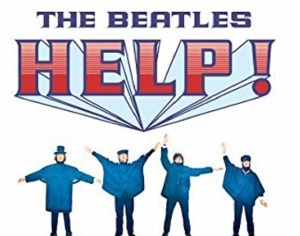
Help me if you can, I’m feeling down
And I do appreciate you being round
Help me get my feet back on the ground
Won’t you please, please help me
– lyrics from Help! by the Beatles
Unlike the Beatles, most, if not all of us, avoid asking others for help.
There may be several reasons for such behavior: we may view it as a sign of weakness, or we don’t want to impose on someone, or we’re worried the person will say no.
But the fact is, we need help to get through life, and so we need to learn how to best ask for help. Research shows that 90 percent of the help that coworkers give one another in the workplace is in response to explicit requests for help.
Heidi Grant has done just that with her recent TED talk, “How to Ask for Help – and Get a Yes”.
Heidi offers four specific tips on how best to ask someone for help to increase the likelihood the person you ask agrees to help:
- First tip: when you ask for help, be very, very specific about the help you want and why. Vague, sort of indirect requests for help actually aren’t very helpful to the helper, right? We don’t actually know what it is you want from us, and, just as important, we don’t know whether or not we can be successful in giving you the help.
- Second tip: Avoid disclaimers, apologies, and bribes, evidenced by the use of phrases such as, ‘I’m so, so sorry that I have to ask you for this.” “I really hate bothering you with this.” “If I had any way of doing this without your help, I would.” How is someone supposed to find it satisfying to help you if you really hated having to ask that person for help?
- Third tip: do not ask for help over email or text. We like to ask for help over email and text because it feels less awkward for us to do so. You know what else feels less awkward over email and text? Telling you no. Research shows that In-person requests for help are 30 times more likely to get a yes than a request made by email.
- Fourth tip: When you ask someone for their help and they say yes, follow up with them afterward. What is rewarding about helping is knowing that your help landed, that it had impact, that you were effective.
So there you have it, four simple but effective tips on to effectively ask for help.
I’ve noticed that I’ve gotten more comfortable at asking others for help as I’ve gotten older.
Perhaps I’ve learned how precious time is, and that it’s a much more effective use of time to ask for help than to waste time not knowing how to do something.
I also view asking for help not as a sign of weakness, but as a sign of confidence; confidence in recognizing what I know and what I don’t know, and confidence in the person I’m asking for help.
It also fits in with my top Clifton Strength – that of being a learner. Often times the best way to learn something is to ask an expert for help when you get stuck.
I’ve also learned that a key part of asking for help is taking the help to heart and using it as best you can. Otherwise, what was the point in asking?
Here is Heid’s great 11-minute TED talk:
